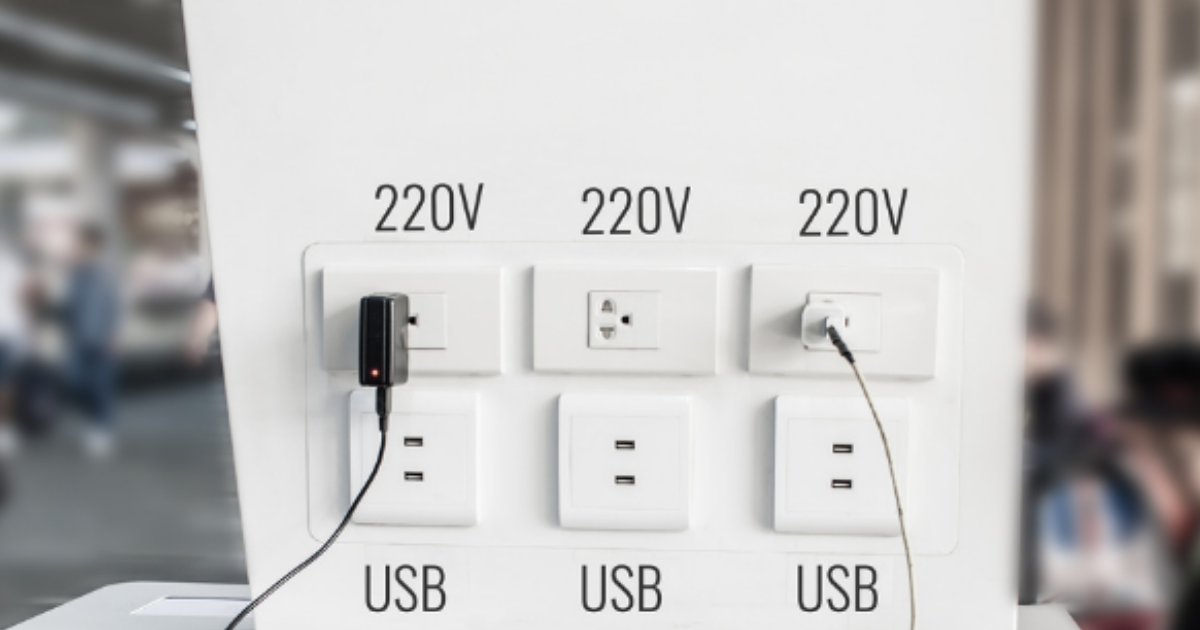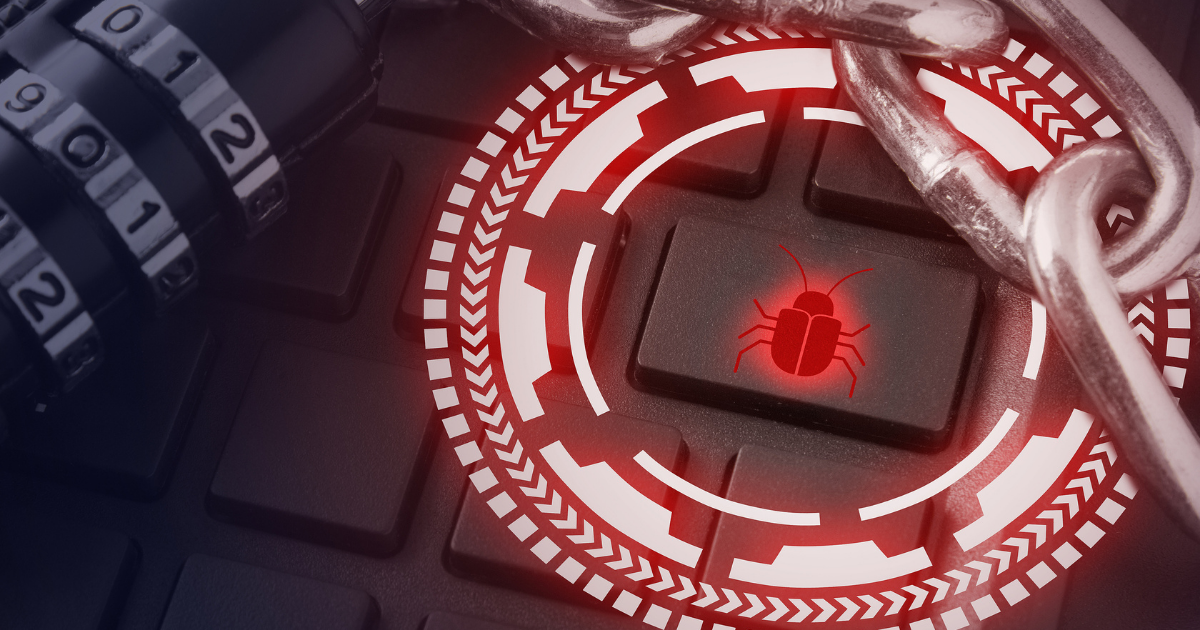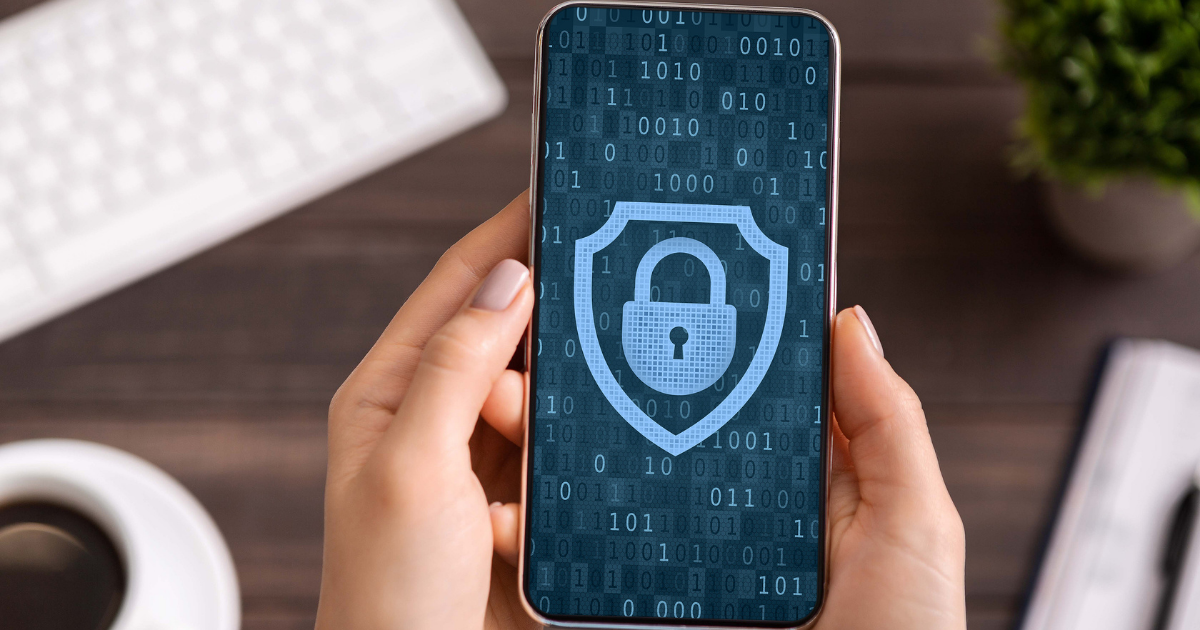Read This Before You Plug Into a Free USB Charging Station!

We’re in the age of hybrid work, where employees feel empowered to work from anywhere, anytime. Often, this means working from coffee shops, libraries and even the airport! While it’s great for productivity that employees can work wherever they want, there are huge security implications to consider. While you may know about common mobile security risks, like malware and dodgy WiFi spots, many businesses aren’t aware of one considerable risk: USB charging stations.
What is a Public USB Charging Station?
A public USB charging station is a spot that features USB ports. Typically, these ports are free to use. You can plug your phone or laptop in via an adapter, and juice up your battery charge. For people working on the go, public USB charging stations can be a lifesaver. We’ve all been caught out and about only to see our battery running dangerously low! Naturally, if someone sees a free USB charging station nearby in these circumstances, they’ll use it. However, be warned, using these charging stations could put sensitive data at risk.
Why Are USB Charging Stations a Risk to Business Security?
Hackers have caught onto the fact that plenty of employees are working from home – and that plenty of them will use these charging stations while working on the go. Opportunistic as ever, cybercriminals have started to corrupt these charging stations, infiltrating them with malware and spyware. As a business leader, it’s important to realize that the charging ports you and your employees use to charge your devices are also the same ports you use to upload and download data when you plug your mobile and laptop into another device.
Because these ports have multiple functions, there’s a huge risk that hackers could steal data from devices when people plug into these charging stations. This growing, concerning trend is known as juice jacking, as recently discussed by state official: “You might have seen a public USB charging station at an airport or shopping center. But be warned, a free charge could end up draining your bank account,” Los Angeles County Deputy District Attorney Luke Sisak explained in November 2021. While this warning came from LA, southern Kentucky and Middle Tennessee businesses – and their employees- are also at risk. Juice jacking can occur anywhere, so you need to be aware of the risks.
What Is The Potential Impact of a Juice Jacking Attack?
If one of your employees becomes victim of a juice jacking attack, two things could happen:
- In the first instance, a cybercriminal could steal all the data on the employee’s phone. This may include customer data, email information, intellectual property and contact details for employees and partners.
- The other thing that could happen is a malware attack. The charging port might be riddled with ransomware, spyware or another virus. Depending on how well-designed the malware is, it may stay dormant on your employee’s device and only launch once they have joined the corporate network.
Is Juice Jacking an Imminent Risk to My Business?
Juice jacking is a relative newcomer on the cybercrime scene. Because it’s so new, there’s not much data on how prevalent these attacks are. However, this doesn’t mean that you can relax about this threat. Any malware or data loss could harm your business. Research indicates that the average cost of a breach is $108,000 for SMBs – so this threat is not to be taken lightly!
The good news is that, with some simple steps, you can dramatically reduce the likelihood of your employees falling victim to a juice jacking attack. The main thing to do is educate your employees on this threat. Share this blog with them, or ask your managed IT provider to conduct a training session on juice jacking, so they know not to use free charging stations. We also advise offering helpful alternatives, so your employees aren’t stuck out and about with a low battery. Viable alternatives to public charging stations include:
Invest in a Battery Bank to Charge Your Phone
Battery banks and spare batteries are cost effective and more secure than charging stations. Most battery banks are lightweight and fit easily in a briefcase or handbag. Plus, they tend to offer multiple charges without needing to be charged themselves.
Look For Electrical Outlets Instead of USB Stations
Restaurants, coffee shops, libraries and airports all have electrical outlets that people can plug their chargers into. Using your own charger is much safer than using a USB station, so advise your employees to take their charger out with them if they don’t have to purchase a battery bank.
Get Help Managing & Securing Your Mobile Devices
Mobile devices make up a majority of most business endpoints. Copperband Technologies can help your southern Kentucky or Middle Tennessee business put a mobile security plan in place that keeps your data and employees protected. Contact us today to schedule a consultation! Call 931.263.8000 or email us.






